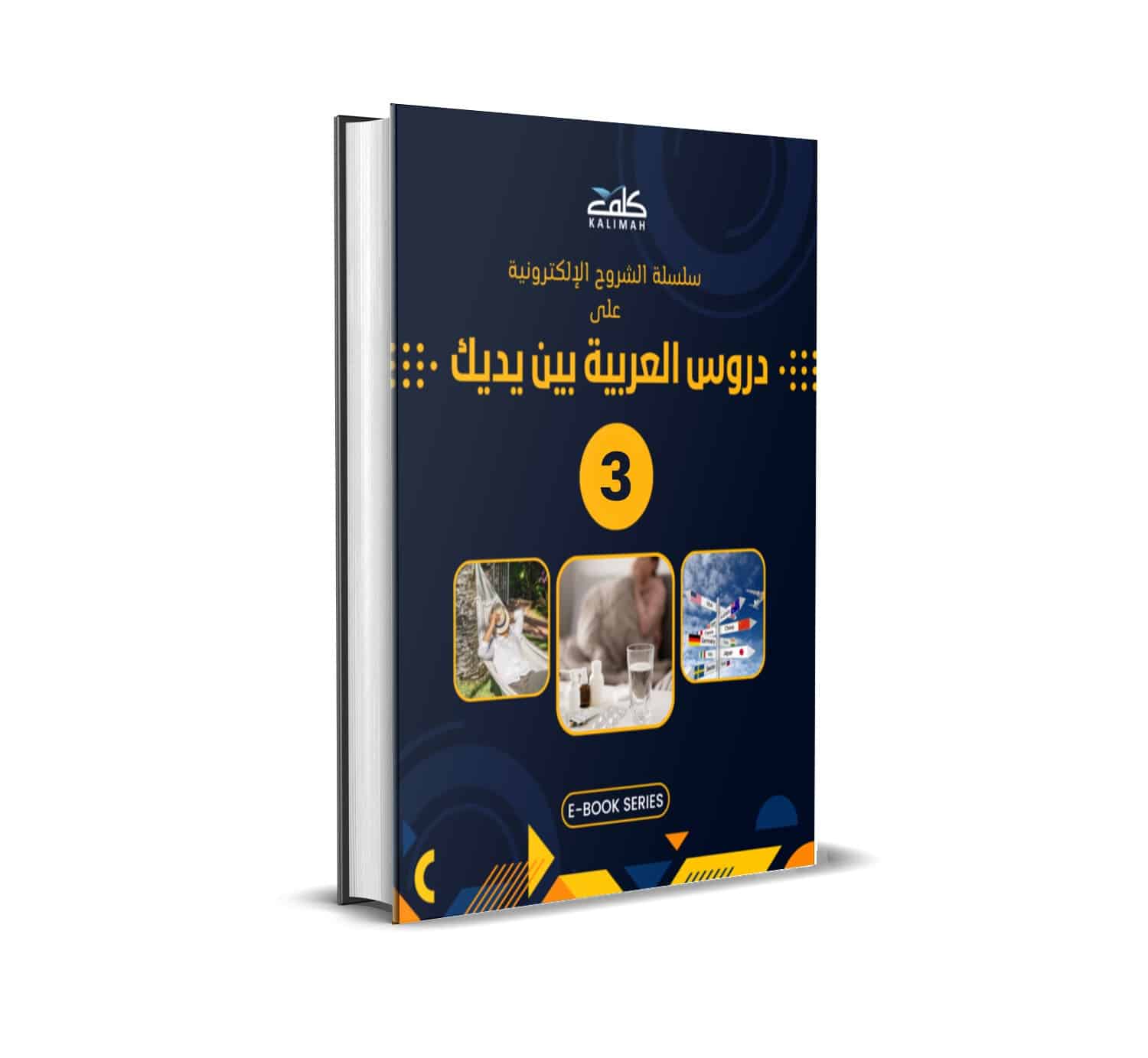Learning Arabic in just 10 days may seem ambitious, but by focusing on key essentials, you can lay a solid foundation for future fluency. Start with mastering the alphabet, basic phrases, and fundamental grammar, while practicing daily listening, speaking, reading, and writing.
Building vocabulary with everyday terms like numbers and days of the week, alongside engaging in conversation and media immersion, will boost your confidence. Though fluency is unattainable within such a short time, consistent practice and guidance from tutors or group classes will propel you toward your long-term language goals.
While you won’t become fluent in that short time, you can make progress by focusing on key areas.
Arabic, a rich and expressive language, opens the door to a diverse cultural heritage and vibrant communities. To start your journey with Arabic, focus on the essentials: mastering the Arabic alphabet, which is the foundation of reading and writing; learning basic phrases to navigate everyday interactions; and understanding fundamental grammar to form simple sentences.
How To Learn Arabic In 10 Days?
Learning Arabic in just 10 days is a challenging goal, but you can build a solid foundation by focusing on key essentials. Start by mastering the Arabic alphabet, learning common phrases, and understanding basic grammar to form simple sentences.
As the days progress, practice listening, speaking, reading, and writing to enhance your language skills. Daily activities such as learning numbers, days of the week, and useful vocabulary will prepare you for simple conversations.
Though fluency in 10 days is unrealistic, this approach helps you gain confidence and a taste for the language. Consistent practice and engaging with native speakers, tutors, or group classes will greatly improve your progress.
Involving yourself in Arabic media and using language-learning tools will accelerate your development, making this initial learning phase a stepping stone toward long-term fluency.
Here’s a detailed plan to maximize your Arabic learning in 10 days:

Day 1: Get To Know Arabic Through The Basics
Embark on your Arabic learning journey by starting with the essentials: learn the Arabic alphabet to unlock reading and writing, master key phrases for everyday conversations, and grasp basic grammar to construct simple sentences.
This foundational knowledge will make your exploration of Arabic smoother and more engaging, paving the way for deeper understanding and effective communication.
Learn The Arabic Alphabet:
Arabic script is fundamental. Spend time learning how to read and write the Arabic alphabet.
Techniques:
Practice writing each letter and learn the different forms (initial, medial, final, and isolated). and listen to native speakers and mimic their pronunciation. Focus on unique sounds like ع (ayn) and ق (qaf)
Exercise:
Write out the alphabet repeatedly and practice pronouncing each letter.
Arabic Basic Pronunciation:
Familiarize yourself with the sounds of Arabic. Use resources like YouTube videos or language apps to hear native pronunciation.
Day 2: Learn Basic Arabic Phrases
Start your Arabic journey by mastering essential phrases. Learn greetings, polite expressions, and common questions to navigate daily conversations and make a great first impression.
These basic phrases will help you connect with others and build confidence in using Arabic.
Arabic Greetings And Introductions:
Learn common phrases like “Hello” (مرحبا), “Thank you” (شكرا), “Please” (من فضلك), and “Goodbye” وداعا (Wadaa’an) Yes: نعم (Na’am), No: لا (La), and basic questions.
Techniques:
Practice speaking these phrases out loud and use them in simple dialogues or online tutors to practice these phrases.
Day 3: Learn Arabic Numbers And Days Of The Week
Get started with Arabic by learning numbers and days of the week. These basics will help you manage everyday tasks and schedule events, making your language practice more practical and relevant.
Numbers 1–10:
Learn to count and use numbers in simple contexts.
1 – واحد (Wahid)
2 – اثنان (Ithnan)
3 – ثلاثة (Thalatha)
4 – أربعة (Arba’a)
5 – خمسة (Khamsa)
6 – ستة (Sitta)
7 – سبعة (Sab’a)
8 – ثمانية (Thamaniya)
9 – تسعة (Tisa’a)
10 – عشرة (Ashara)
Arabic Days Of The Week:
Learn the days of the week and basic time-telling phrases.
Sunday – الأحد (Al-Ahad)
Monday – الإثنين (Al-Ithnayn)
Tuesday – الثلاثاء (Al-Thulatha)
Wednesday – الأربعاء (Al-Arba’a)
Thursday – الخميس (Al-Khamis)
Friday – الجمعة (Al-Jum’a)
Saturday – السبت (As-Sabt)
Day 4: Essential Arabic Grammar
Grasping essential Arabic grammar rules, like pronouns and basic sentence structure, is key to forming clear and correct sentences in Arabic.
This foundation will support your ability to communicate effectively.
Arabic Pronouns:
I / أنا (Ana)
You (singular): أنتَ/أنتِ (Anta/Anti)
He / هو (Howa)
She / هي (Heya)
Arabic Verbs:
To be: يكون (Yakunu)
To have: يمتلك (Yamtiliku)
Techniques:
Construct simple sentences using these pronouns and verbs. Write and speak out sentences, focusing on correct word order.
Simple Sentence Structure:
Practice basic sentences, e.g., “I am a student” (أنا طالب). “He is a doctor” (هو دكتور).
Day 5: Learn Arabic Vocabulary Building
Expand your Arabic skills by focusing on key vocabulary related to daily life. Building a solid word bank will enhance your ability to understand and participate in conversations.
Arabic Daily Life Vocabulary:
Focus on vocabulary related to everyday activities like: Food: خبز (Khobz – bread), ماء (Ma’ – water).
Family: أم (Umm – mother), أب (Ab – father).
Techniques:
Label items around your home with their Arabic names.
Flashcards:
Create or use pre-made flashcards to memorize words and phrases.
Day 6: Listening Practice
Improve your Arabic comprehension by actively listening to native speakers. This practice helps you get used to the language’s rhythm, pronunciation, and common phrases.
Watch Simple Arabic Videos:
Find videos or children’s shows in Arabic to get used to the flow of the language.
Techniques:
Listen actively, noting down new words and phrases. Use subtitles if available.
Listening Comprehension:
Try to understand basic conversations or dialogues.
Try to summarize what you’ve heard or answer questions based on the audio.
Day 7: Arabic Speaking Practice
Boost your Arabic fluency by engaging in regular speaking practice.
This helps build confidence, improve pronunciation, and enhance conversational skills.
Language Exchange:
Spend time speaking with a native speaker or practice Arabic speaking with language exchange partners.
Practice Common Situations:
Practice dialogues such as ordering food in a restaurant or asking for directions.
Techniques:
Engage in short conversations, focusing on correct pronunciation and use of new vocabulary.
8. Day 8: Reading Practice
Enhance your Arabic skills by reading simple texts. This practice improves your understanding of sentence structure and vocabulary while boosting overall comprehension.
Simple Texts:
Read children’s books, or beginner-level texts available online, simple articles or short stories in Arabic.
Techniques:
Read aloud and highlight unfamiliar words. Use context clues to understand meaning.
Identify Patterns:
Focus on sentence patterns and repetitive structures.
and use graded readers for beginners.
9. Day 9: Writing Practice
Strengthen your Arabic by writing simple sentences and paragraphs. This practice helps reinforce grammar, expand vocabulary, and improve your overall language skills.
Write Simple Sentences:
Practice writing basic sentences about yourself, your day, or your interests.
Correct Mistakes:
Use language tools or ask a tutor to review and correct your writing or language exchange partners and use online grammar check tools if available.
10. Day 10: Review And Practice
Consolidate your Arabic learning by reviewing key concepts and practicing regularly. This helps solidify your knowledge and build confidence in using the language.
Review What You’ve Learned:
Go over vocabulary, grammar, and phrases from the previous days.
Simulate Real Conversations:
Try to engage in a longer conversation or write a short essay about your experience learning Arabic.
Top 3 Tips To Learn Arabic In 10 Days Successfully:
Maximize your Arabic learning with consistent practice, immersion, and leveraging useful resources. These strategies will keep you motivated and accelerate your progress.
Consistency:
Dedicate a few hours each day to focused learning.
Immersion:
Surround yourself with the language as much as possible, including using Arabic in your daily life.
Resources:
Use language learning apps, online courses, and educational videos to supplement your study.
Remember, mastering Arabic in 10 days is unrealistic, but you can lay a foundation and develop a taste for the language. Continued practice beyond these 10 days will be crucial for further progress.
Step Into The World Of Arabic With Kalimah Center’s Engaging Classes!
Kalimah Center provides dynamic and engaging Arabic language courses designed for all ages and proficiency levels. Our expert instructors use innovative methods to help you master Arabic quickly and confidently. From interactive lessons to cultural insights, we make learning Arabic enjoyable and effective.
Join our vibrant community and start your journey towards fluency today. Explore our offerings at Kalimah Center and transform your Arabic learning experience!
Get Started with a Free Arabic Lesson—No Obligation, Just Insight!
📚 Explore Our Courses:
Online Arabic Course: Tailored to your level, our comprehensive Arabic program includes 16 teaching levels and 400+ hours of personalized sessions.
Online Quran With Tajweed Course: Perfect for non-Arabic speakers, our course spans 13 levels and equips you with Tajweed mastery from beginner to advanced.
Online Arabic Course For Kids: Nurture your child’s love for Arabic with our engaging and structured program, available in 24 levels for primary, intermediate, and secondary stages.
🚀 Start Your Free Trial Today! 🚀
Don’t miss out on this life-changing opportunity to deepen your faith and knowledge. Sign up now for your free trial and take the first step towards becoming a better practicing Muslim with Kalimah Center!
Conclusion
Embarking on the journey to learn Arabic in just 10 days can be both exciting and challenging. By focusing on foundational elements, such as the alphabet, essential phrases, basic grammar, and practical vocabulary, you lay the groundwork for further learning. While you won’t achieve fluency in such a short time, this initial effort will help you build confidence and familiarity with the language.
Engaging with experienced tutors and participating in group classes significantly enhances your learning experience. Tutors provide personalized guidance, address your specific needs, and offer instant feedback, which accelerates your progress.
Group classes, on the other hand, foster interactive learning, provide diverse perspectives, and create a supportive environment for practicing Arabic with peers. Together, these resources make your journey more effective, enjoyable, and immersive, setting you up for continued success in mastering Arabic.












